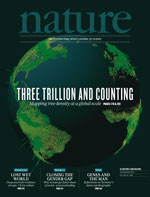 After reviewing hundreds of peer review reports from three journals, authors representing publishers BioMed Central and Springer suggest there may be some benefits to using “open” peer review — where both authors and reviewers reveal their identity — and not relying on reviewers hand-picked by the authors themselves.
After reviewing hundreds of peer review reports from three journals, authors representing publishers BioMed Central and Springer suggest there may be some benefits to using “open” peer review — where both authors and reviewers reveal their identity — and not relying on reviewers hand-picked by the authors themselves.
But the conclusions are nuanced — they found that reviewers recommended by authors do just as good a job as other reviewers, but are more likely to tell the journal to publish the paper. In a journal that always uses open reviews — BMC Infectious Diseases — reviews are “of higher quality” than at a journal where authors are blinded to reviewers, but when one journal made a switch from a blinded to an open system, the quality didn’t improve.
Here’s what the authors conclude in the abstract of the paper, published today in BMJ Open: Continue reading Should peer review be open, and rely less on author-picked reviewers? Study says…








